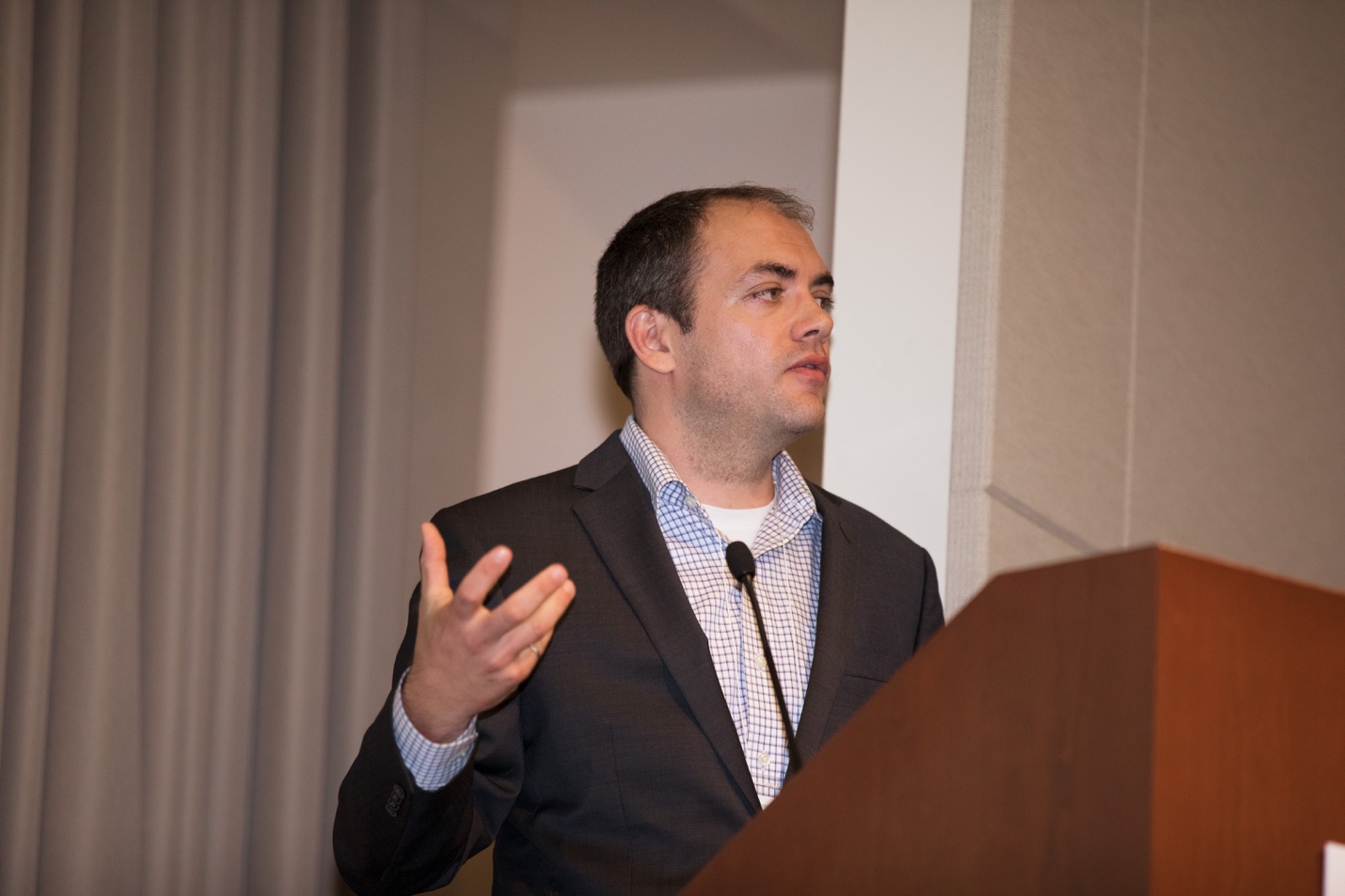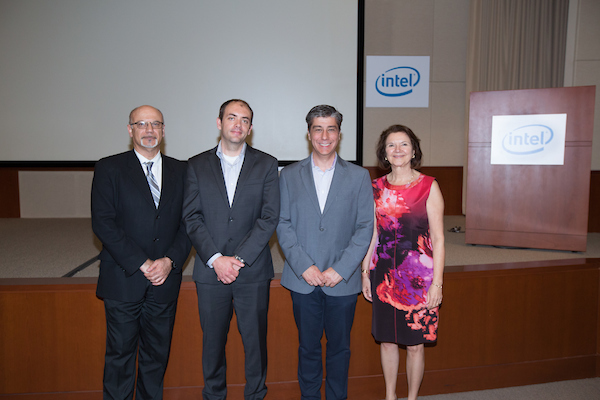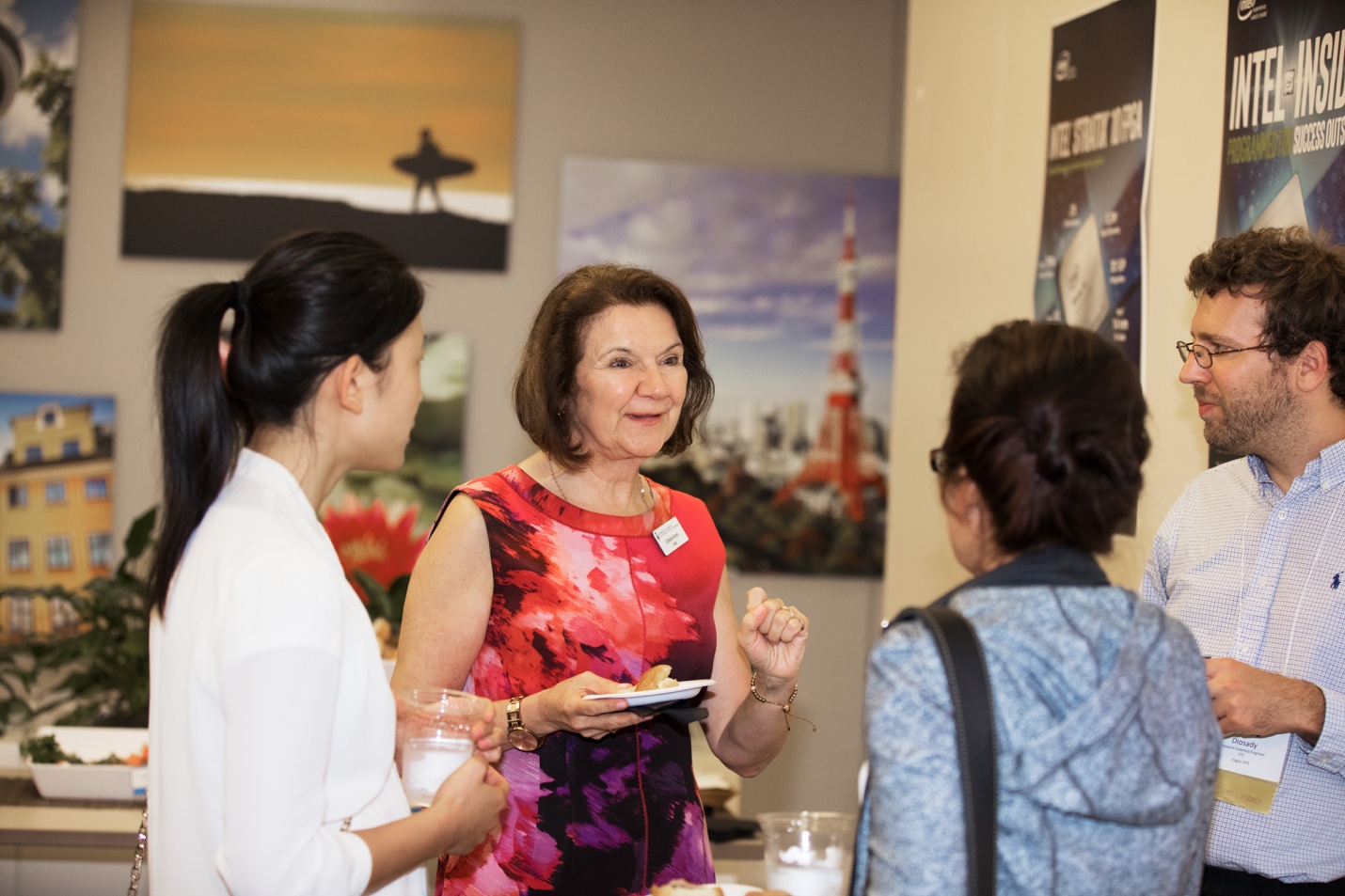May 23, 2017
Lightweight materials, high-efficiency electric powertrains, high-density lithium batteries, sensors and machine learning: if you are looking for the latest in advanced engineering technologies, look no further than your driveway. Electric vehicles (EVs) hold great potential for multidisciplinary collaboration to help revolutionize the way humans transport people and things.
On Thursday May 4, alumni and current students of U of T Engineering gathered to hear about the latest innovations in electric vehicles from Professor Olivier Trescases of The Edward S. Rogers Sr. Department of Electrical & Computer Engineering (ECE). Hosted by Alex Grbic (CompE 9T4, MASc 9T6, PhD 0T3) at Intel’s Programmable Solutions headquarters in San Jose, the event brought together nearly 50 California-based alumni and students currently on their Professional Experience Year (PEY) internships in the Bay Area. Alumni, students and friends heard about new research thrusts in electric vehicles within the ECE department, as well as the exciting opportunities that arise when alumni stay connected to their alma mater.
Professor Trescases’ work on advanced power electronics and integrated circuits has applications in the areas of automotive, industrial, aerospace and renewable energy. “My research is in the area of power converters: we design the interface between the source and the load across a wide spectrum of applications from semi-conductor chips in cell phones to power converters in electric vehicles and solar farms,” said Professor Trescases. “The goal is the same: we want to convert power, control it and do it as efficiently as possible.” Currently, his research group is working on a variety of aspects related to the rapidly growing field of electric vehicles and collaborating with industrial partners to move the field forward.

There are currently a multitude of EVs on the market: electric bikes, multi-passenger vehicles like electric buses and trains, and electric cars and motorcycles. As for the future of electric vehicles? The sky is not even the limit. In collaboration with Solar Ship Inc., Professor Trescases and his team produced power converters that drastically reduced the size and improved the power efficiency of the harvesting system in the company’s solar powered planes. “These planes were designed to deliver supplies and cargo to areas that have no road infrastructure and no fuel,” said Professor Trescases. “They aren’t competing with jets or helicopters, but with mules and jeeps — these solar planes can land on a soccer field and charge right on the ground.”
Trescases shared how in 2016, an alumnus, Tony Han, connected him and Professor Peter Lehn with an entrepreneur in China who wanted to leverage Ontario’s manufacturing infrastructure and research capabilities to start an electric vehicle company in the province. This introduction eventually led to a partnership between the University of Toronto and Havelaar, an EV company, to create the University of Toronto – Havelaar Electric Vehicle (UTHEV) Research Centre. The UTHEV Research Centre will focus on five areas of research: energy storage, battery charging, power management, power training and self-driving technologies to design and develop the next generation of electric vehicles. “This is a really exciting success story: it involves sustainability, multidisciplinary research, industrial collaboration and it all started with a connection made between an alumnus and his former professor,” said Trescases. “We are right on the cusp of something really exciting with EVs; the future is bright for electric transportation.”
More information:
Jessica MacInnis
Senior Communications Officer
The Edward S. Rogers Sr. Department of Electrical & Computer Engineering
416-978-7997; jessica.macinnis@utoronto.ca


